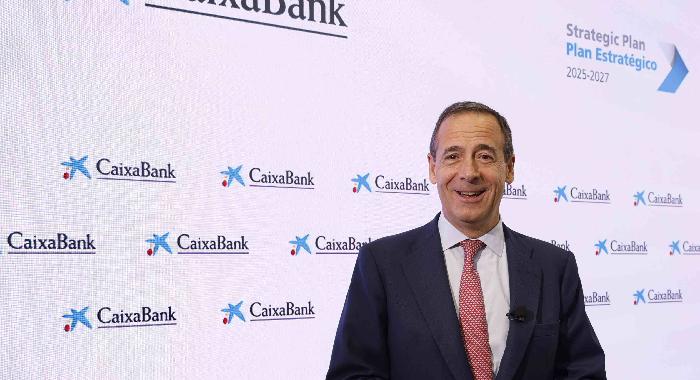
CaixaBank, as part of its commitment to accelerate the transition towards a low-carbon economy and achieve zero CO2 emissions by 2050, has joined the European Clean Hydrogen Alliance, a European Commission organisation.
The goal of the Alliance is to promote and develop the production of renewable hydrogen as a catalyst for decarbonising in areas such as transport, industry, and other economic sectors needed to fulfil the commitments made by the European Union.
The European Clean Hydrogen Alliance is part of the European Commission's hydrogen road map, which seeks to mobilise resources to develop an investment agenda to reach agreed climate targets. Among these, is the €2.6 billion to be allocated to projects to produce, distribute, and utilise renewable hydrogen, which will generate over five million jobs and reduce CO2 emissions by 560 MT a year. This initiative brings together industry, agencies, national and local government entities, civil society, and other stakeholders.
With more than 900 members, the participants are organised into six working groups, where thematic forums are set up to debate the investment agenda, the range of projects and the mobilisation of resources to install at least 6 GW of renewable hydrogen electrolysers in the European Union by 2024, and 40 GW by 2030.
The Alliance's strategy has also set a timeline of 2050, by which point it expects to have large-scale renewable hydrogen technologies in place.
Hydrogen as a key element to achieve decarbonisation
Hydrogen is the most abundant element in nature, most readily available in water. By taking seawater and subjecting it to electrolysis, the water molecule is broken down, releasing hydrogen. When renewable energy is used to carry out this process, the hydrogen is called green, since no CO2 is released during its production. It can be stored and transported in both its liquid and gaseous state, which are the most viable alternatives, depending on how it is used.
Hydrogen is a key component in achieving decarbonisation, particularly in emission-heavy sectors such as industry and transport. Its high energy density and the ability to produce it without releasing CO2 makes it the main option for decarbonising heavy-duty or long-distance transport. It also has the potential to be used as an energy source and raw material in industry in general.
The Spanish government's agenda and its recovery plan include financing green hydrogen projects over the next three years, worth 1.555 billion euros. The growth in hydrogen production will be driven by decarbonisation laws, the Next Generation EU Funds and by the leadership of European companies in the general transition process.
CaixaBank, committed to sustainable financing
CaixaBank is one of the financial institutions most committed to sustainability, given that its Socially Responsible Banking Plan covers five significant principles of action that include a direct contribution to the United Nations Sustainable Development Goals. Through its initiatives, the Bank is supporting environmentally friendly initiatives and projects that contribute to preventing and mitigating climate change and to encouraging the transition to a low-carbon economy and social development.
In 2021, the bank mobilised €24.3 billion in sustainable financing, representing a 95% increase in the volume of sustainable financing throughout 2020. In total, €7.3 billion have been formally arranged in funding linked to ESG variables, including environmental variable goals, such as reduced emissions and energy efficiency, as well as 690 million euros in green funding. CaixaBank has also participated in the issuance of 16 green, sustainable, or social bonds, worth a total value of €16.3 billion. At the end of Q3 2021, CaixaBank ranked 5th in green and sustainable loans by volume, according to EMEA Green & ESG Loan League Table by Refinitiv.
To date, CaixaBank has issued seven bonds in support of the United Nations Sustainable Development Goals and is Europe's leading bank with the highest volume of ESG credit issuances in euros: four green bonds and three social bonds, for a total value of €6 billion and £500 million.





